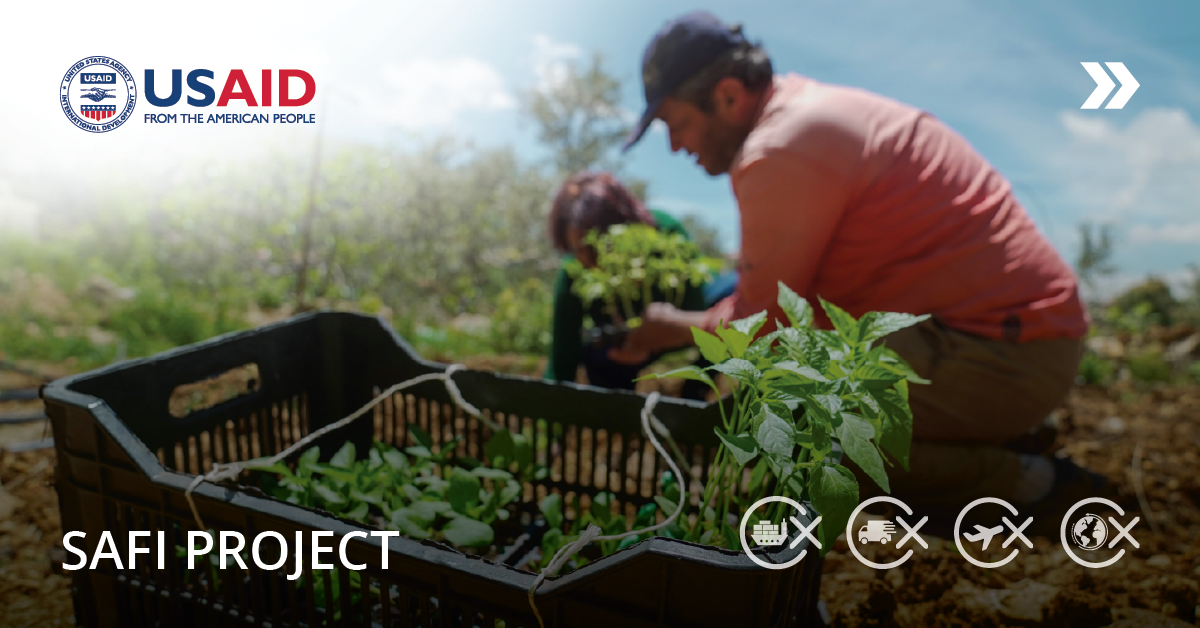
Lebanon has been suffering from a continued currency devaluation since October 2019. The Lebanese Pound (LBP) has already lost 80% of its value. According to the Central Association of Statistics, the price inflation of consumer goods reached 150.3% and the food price inflation index hit 228.6% between April 2020 and April 2021.
Agri-food Production Challenges
The main critical issue is translated in the country’s high dependency on imports, where 80% of its food needs are covered through imports. During the same phase of inflation, the salaries in LBP remained stable to some extent, which led the World Bank to anticipate that Lebanon is likely to witness an increase in poverty, unemployment, and insecurity and that the impact will be felt most severely by the vulnerable segments of the population, particularly small food producers and farmers.
At a production level, producers and farmers selling locally are selling goods in LBP. The currency devaluation shifted the price of raw material and input supplies, therefore, increased the cost of goods drastically.
Here is a quick brief on some of the challenges facing the agri-food sector and its farmers and producers.
Price Increase of Inputs
The price increase of inputs is leading to a significant reduction in agriculture activities translating into a loss of income for a significant number of Lebanese. This will be reflected in a lower supply of agricultural produces and a higher price in the market.
The input supplies market is primarily based on imports with a total of 107 M$ of imports with this yearly breakdown:
- Irrigation equipment: 12 M$
- Seeds: 31 M$ (17 M$ for potato seeds)
- Pesticides: 19 M$
- Fertilizers: 45 M$
The only locally produced supplies are greenhouses, agricultural plastics, and basic irrigation items. Nevertheless, raw materials (polyethylene and steel) are also imported and the trading of all these supplies is effectively happening in US Dollars.
Reliance on Imported Food
As per a study done by BankMed in 2015, the import of food accounted for 3.6 B$, with one-third of this amount is for prepared foodstuff or processed food. Food imports account for 18% of the total imports according to the World Bank. In addition to wheat import (around 580000T per year), below are some food import figures:
- Dairy products 350 M$
- Live animals 400 M$
- Live animals for dairy production 16 M$
Imported Animal Feed
In addition to input supplies and food, animal feed is also imported and is essential to maintain the supply chain, especially for dairy and poultry products. Imported feed and forages for chicken and cow, can reach 140 M$ yearly.
Scaling-up Agri-Food Innovations
The agricultural sector has the growth potential and presents a socio-economic opportunity amid the current crisis to secure basic food needs, create jobs that secure livelihoods, and produce agri-food products that can compete internally and abroad, supporting economic development.
Such challenges can fuel and initiate a broad interest in the agri-food sector allowing SMEs to work on products or services that can substitute an imported product, decrease the import of at least one raw material/input product or provide a service that helps in reducing import dependency in the wake of the financial and economic.
Under the USAID-funded Agriculture and Rural Empowerment (ARE) activity, Berytech is implementing the Scaling-up Agri-Food Innovations (SAFI) project, a two-year project focusing on the scaling of agri-food and agriculture solutions to reduce import dependency for the first year.
The call will be open starting June 20, 2021, for SMEs offering services or products in agri-food or agriculture that could reduce import dependency and create jobs for vulnerable communities. In particular, the call targets companies with more than 3 employees, that have existing access to the market and a minimum viable product with high growth potential.
The four SMEs will benefit from business foundation programs, 24 hours of tailored one-on-one coaching, facilitated partnerships, and advisory support from the QOOT Cluster. Based on their needs, the four selected SMEs will receive up to $25,000 each of in-kind support for further technical assistance, tools, and equipment.
About SAFI
Scaling-up Agri-Food Innovations (SAFI) is a two-year project focusing on the scaling of agri-food and agriculture solutions to reduce import dependency. The SAFI project is implemented by Berytech and funded by the United States Agency for International Development (USAID) through the Agriculture and Rural Empowerment (ARE) Activity.
For more information on the selection criteria and procedure to apply, visit the page: https://berytech.org/programs/safi/apply/









